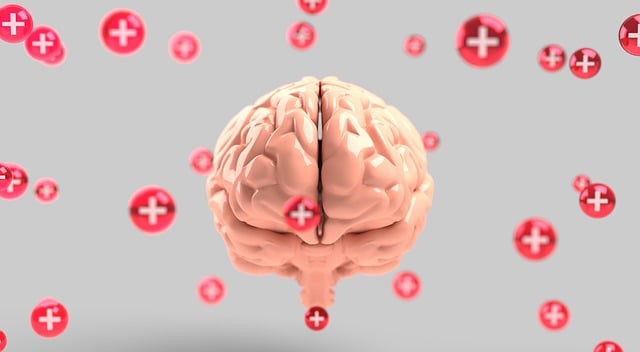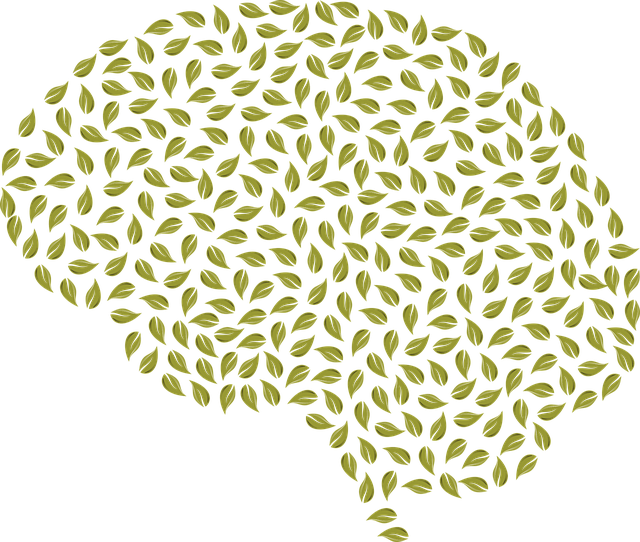In today's digital age, media portrayal of mental illness significantly influences public understanding and perpetuates stereotypes within cultural communities, like Mandarin-speaking populations in Broomfield. To combat this, an innovative approach is required. Broomfield Mandarin Chinese Speaking Therapy offers a groundbreaking solution by providing therapy sessions entirely in Mandarin, addressing language barriers and fostering open discussions about mental wellness without judgment. By combining language guidance with Mental Wellness Journaling Exercises, this therapy model promotes cultural competency and empowers individuals to take charge of their mental health. Accurate media representations, achieved through collaborative efforts and diverse storytelling, are vital for destigmatizing mental illness and providing valuable guidance to viewers from all backgrounds.
Mental illness representation in media is a critical issue, shaping public understanding and contributing to stigma or promoting empathy. This article explores the current landscape of mental health depictions, highlighting the need for accurate and sensitive portrayals. We introduce a unique approach, the Broomfield Mandarin Chinese Speaking Therapy, addressing cultural barriers to mental health support. By examining challenges, implementing strategies, and emphasizing cultural sensitivity, we aim to empower positive change in media representation, fostering a more inclusive and supportive society.
- Understanding Mental Illness Representation in Media: The Current Landscape
- Broomfield Mandarin Chinese Speaking Therapy: A Unique Approach to Addressing Stigma
- Challenges and Barriers: Why Accurate Portrayals are Essential
- Strategies for Improving Media Depictions of Mental Health
- Empowering Change: The Role of Cultural Sensitivity in Media Representation
Understanding Mental Illness Representation in Media: The Current Landscape

In today’s digital age, media plays a significant role in shaping public understanding of mental illness. The current landscape presents a mixed picture; while there has been growing awareness and some positive representations, many stereotypes and misconceptions still persist. Media often portrays mental health issues through limited, simplistic, or even sensationalized narratives, which can have detrimental effects on society’s perception. This is particularly relevant for cultural communities, such as the Broomfield Mandarin Chinese-speaking population, where access to accurate information may be hindered by language barriers and a lack of diverse media representation.
Understanding mental illness requires delving into the complex nature of human experiences. It involves recognizing that conditions like depression, anxiety, or bipolar disorder are not mere characters in a story but real challenges impacting individuals’ daily lives. Encouraging inner strength development and mental wellness journaling exercises can be powerful tools for both personal growth and challenging negative media portrayals. By promoting open discussions and providing guidance on effective coping strategies, such as those offered by Broomfield Mandarin Chinese-speaking therapy services, communities can foster a more supportive environment, reduce stigma, and ultimately contribute to the prevention of depression and other mental health issues.
Broomfield Mandarin Chinese Speaking Therapy: A Unique Approach to Addressing Stigma

Broomfield Mandarin Chinese Speaking Therapy offers a unique and innovative approach to tackling mental illness stigma within the Chinese community. This therapy model recognizes the cultural barriers that often prevent individuals from seeking help, especially when it comes to discussing mental health in a language other than their native one. By providing therapy sessions conducted entirely in Mandarin Chinese, this approach aims to create a safe, comfortable, and culturally sensitive environment for patients. Such a setting encourages open dialogue about mental wellness, fostering a sense of trust and encouraging individuals to share their struggles without the fear of stigma or judgment.
Incorporating Mind Over Matter principles within these therapy sessions, Broomfield’s method goes beyond language translation. It leverages cultural competency training for healthcare providers, ensuring they understand the nuances of Chinese cultural beliefs surrounding mental illness. This holistic approach combines Mandarin-specific guidance with effective Mental Wellness Journaling Exercises to empower patients, enabling them to take control of their mental health journey. By addressing both the linguistic and cultural aspects of mental health care, this unique therapy model paves the way for more inclusive and effective support in the Chinese community.
Challenges and Barriers: Why Accurate Portrayals are Essential

The media plays a significant role in shaping public perception of mental illness, often influencing how society understands and treats individuals living with these conditions. However, challenges and barriers persist when it comes to accurately representing mental health issues on screen. Stereotypes, limited narratives, and lack of cultural diversity have long been prevalent, leading to misconceptions and further stigmatization. These inaccuracies not only fail to help those struggling but also hinder efforts towards self-esteem improvement and emotional well-being promotion techniques.
For instance, the absence of nuanced representations can make it difficult for viewers, especially those from diverse backgrounds, to identify with characters facing mental health challenges. This is particularly relevant in communities where access to Broomfield Mandarin Chinese speaking therapy services is limited. Accurate portrayals are essential to fostering understanding and empathy, encouraging open conversations about mental health, and advocating for better Mental Health Policy Analysis. By presenting a more realistic and diverse range of experiences, the media can contribute to breaking down barriers and promoting a more inclusive society that supports overall emotional well-being.
Strategies for Improving Media Depictions of Mental Health

To improve mental health representation in media, a multifaceted approach is required. One key strategy involves collaborating with mental health professionals and individuals who have personally experienced these conditions to ensure accuracy and sensitivity. This includes consulting Broomfield Mandarin Chinese speaking therapy experts for authentic cultural perspectives. By involving diverse voices, narratives can become more nuanced, reflecting the wide range of experiences within the mental health community.
Additionally, media outlets should prioritize showcasing recovery stories alongside struggles, promoting hope and understanding. Anxiety relief techniques, risk management planning for mental health professionals, and confidence-boosting messages can be woven into storylines naturally, providing valuable insights without feeling preachy. Such integrations can help destigmatize mental illness and inspire viewers seeking support or guidance.
Empowering Change: The Role of Cultural Sensitivity in Media Representation

In today’s diverse society, media representation plays a pivotal role in shaping public perception about mental illness. When depicted sensitively and accurately, media stories can empower individuals to seek help and foster understanding among various communities, including those with specific cultural backgrounds, such as Broomfield Mandarin Chinese speaking therapy. Cultural sensitivity goes beyond merely including diverse characters; it involves portraying mental health struggles in a way that resonates with different cultures’ experiences and coping mechanisms. This approach ensures that viewers from marginalized communities see themselves reflected honestly and feel validated in their unique journeys towards mental wellness.
By integrating cultural nuances into media narratives, stress reduction methods and techniques can be presented that are both relatable and effective for diverse audiences. For instance, a Mental Wellness Podcast Series Production could feature stories that incorporate traditional Chinese healing practices alongside modern therapy approaches. This strategy not only educates listeners about various stress management techniques but also encourages the adoption of holistic wellness practices tailored to individual cultural identities. Ultimately, empowering change through culturally sensitive media representation can contribute significantly to improving mental health support and resources for all communities.
In conclusion, improving mental illness representation in media is crucial for fostering understanding and reducing stigma. By learning from approaches like Broomfield Mandarin Chinese Speaking Therapy, which effectively addresses cultural barriers, we can navigate challenges and create more accurate and empowering portrayals. Strategies for enhancing media depictions, coupled with cultural sensitivity, are essential steps towards a more inclusive narrative that reflects the diverse experiences of those living with mental health conditions.














